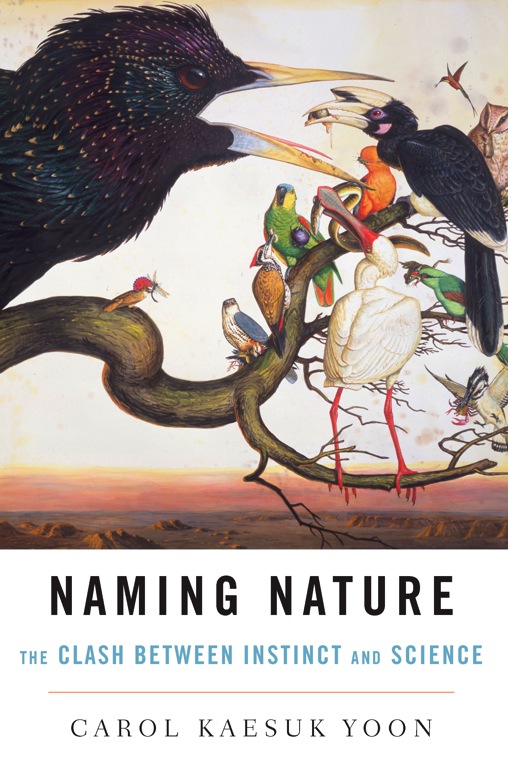 |
Naming Nature The Clash between Instinct and Science
Carol Kaesuk Yoon
W. W. Norton & Company, first edition, 2009
ISBN: 978-0-393-06197-0 |
Eminently readable and thoroughly informative, I highly recommend this book for any student that is taking any taxonomy course or is wondering how taxonomy has evolved through its ~300 year history. This book is infused with just enough humor to keep a smile on your face (although not enough to make you guffaw) which makes the book enjoyable, and when dealing with taxonomy that is saying a lot. The thesis of the book centers around the idea that the science of taxonomy, of classifying living organisms, conflicts with the way the human brain perceives the natural world (what is known as the umwelt). This is actually very true, and not just a hypothetical gimmick devised to make an otherwise boring book on taxonomy more palatable. Ever since my days as a biology student in college I heard about the problems that taxonomists had in generating the “true genealogy” of life and this book brings those memories refreshingly back to life.
All positives aside, there is a rather annoying wrinkle with one of the central theses of the book. The author builds a case that modern taxonomy necessarily removed the umwelt from the equation, given that it interfered with the true classification of species following evolutionary lines, and that this conflicted with our brain’s hardwired need to classify the world around it. To fill this void the umwelt got co-opted by the modern commercial world so that it now primarily classifies consumer goods. The book then strongly suggests that this shift in focus from biological classification to merchandise classification is one of the reasons that people in general are so apathetic to the destruction of biodiversity. I’m not sure I buy this argument. I posit that the lay public slowly lost its interest in the natural world as our societies became more urbanized. Once most of us stopped growing or hunting our food, we interacted less with nature which inevitably caused us to start ignoring it. Why should we still want to classify the natural world around us if we don’t need to? I fear that with our without our umwelt we would have lost our interest in the natural world. I would caution the reader to reach his/her own conclusions here.
